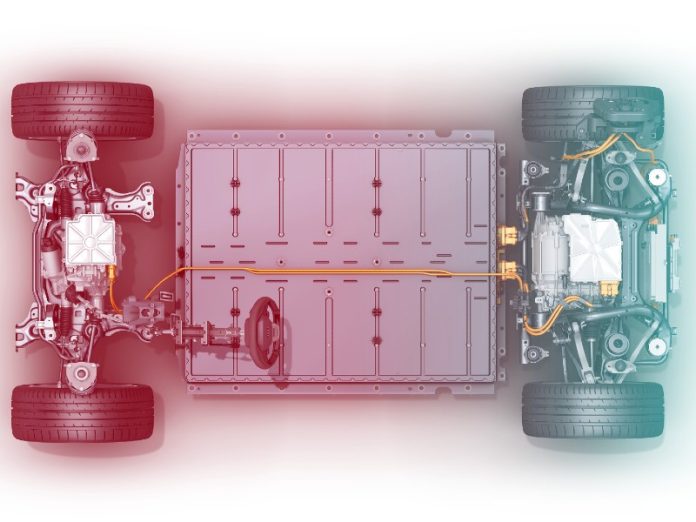As the electric vehicle (EV) revolution accelerates globally, Battery Management Systems (BMS) have emerged as the unsung heroes—quietly orchestrating the health, performance, and safety of advanced battery packs that power the next generation of mobility as well as energy storage solutions.
With the global shift toward high-voltage architectures, solid-state chemistries, and connected ecosystems, BMS technology is undergoing a profound transformation. Today’s systems are not just passive controllers—they are intelligent, predictive, cyber-resilient platforms enabling faster charging, longer life, and circular energy applications.
In this feature, ELE Times explores the frontiers of BMS development, with a focus on innovations in ultra-high-voltage support, real-time AI integration, cybersecurity, thermal breakthroughs, and global standardization. Industry leaders like Delta Electronics offer valuable insights into the technological shifts shaping this pivotal domain.
From Lithium-Ion to Solid-State and Sodium-Ion: The Chemistry-Agnostic Evolution of BMS
Next-gen battery chemistries like solid-state and sodium-ion promise higher energy densities, safer designs, and reduced reliance on scarce materials. However, their diverse electrochemical properties require adaptable and highly intelligent BMS platforms.
Delta Electronics, an industry leader in power and thermal solutions, is playing a key role in enabling this transition. Their latest BMS innovations are designed to be chemistry-agnostic, capable of managing not only conventional lithium-ion batteries but also emerging formats.
“Our advanced BMS platforms are optimized for ultra-high-voltage architectures—800V and beyond,” Rajesh Kaushal, Energy Infrastructure & Industrial Solutions (EIS) Business Group Head, India & SAARC, Delta Electronics, shared. “This is critical for enabling faster charging and higher drivetrain efficiency. We’re also leveraging adaptive control algorithms and AI-driven analytics to achieve precise thermal management, voltage control, and SOC estimation across various battery chemistries, including solid-state and sodium-ion.”
AI at the Edge: Unlocking Real-Time Diagnostics and Predictive Intelligence
BMS systems are becoming smart, self-optimizing, and responsive—thanks to AI and edge computing.
Delta’s integration of AI-driven algorithms and edge computing empowers its BMS to perform real-time cell-level diagnostics, dynamically optimize charging protocols, and conduct predictive analytics for early fault detection and lifecycle management. This evolution from reactive to predictive management allows early detection of anomalies, degradation trends, and potential failure points.
“By processing battery data at the edge, our BMS platforms reduce latency and improve responsiveness,” Delta noted. “This ensures superior energy distribution, thermal safety, and charging efficiency—even under dynamic operating conditions.”
The result is a system that adapts on the fly—extending battery life, maximizing range, and enhancing user safety.
Cybersecurity and Functional Safety in the Era of OTA and Vehicle Connectivity
As EVs become increasingly connected, over-the-air (OTA) updates and cloud integration introduce new vectors for cybersecurity risks. Securing the BMS, which has access to critical vehicle and battery functions, becomes a top priority.
Leading system developers are engineering their BMS architectures in compliance with ISO 21434 for automotive cybersecurity and ISO 26262 to meet stringent functional safety requirements. Robust hardware encryption, secure boot mechanisms, and real-time anomaly detection algorithms are now standard features in next-gen BMS platforms.
Delta is among the innovators focusing on this dual mandate of cybersecurity compliance and functional reliability, ensuring that their BMS solutions remain resilient against evolving threat landscapes.
Enabling Ultra-Fast Charging with Intelligent Thermal Management
With growing consumer demand for sub-10 minute fast charging, thermal stress becomes a critical bottleneck. Charging a large battery at high currents within minutes can induce rapid temperature rise, risking thermal runaway if not managed effectively.
Breakthroughs in active liquid cooling, phase-change materials, and smart heat sinks are being integrated directly into the BMS ecosystem. With AI-assisted thermal forecasting, the system can predict potential heat buildup and adjust the charging cycle in advance to prevent overheating.
Delta is investing in advanced cooling technologies that work in tandem with AI-driven thermal models. “Thermal runaway mitigation is not just about removing heat—it’s about knowing where and when to intervene,” Mr. Kaushal explained.
Balancing Act: Improving Efficiency Through Active Balancing and Real-Time Impedance Tracking
Traditional passive cell balancing wastes energy as heat, especially in large battery systems. New-generation BMS solutions are increasingly adopting active balancing to redistribute charge dynamically and efficiently across cells.
Coupled with real-time impedance tracking, these systems can detect early signs of cell aging or imbalance, allowing preemptive corrections to preserve performance and extend battery lifespan.
Delta’s BMS leverages both techniques, resulting in better thermal uniformity, extended range, and improved charging cycles over the battery’s lifetime.
Towards a Circular Economy: Interoperability and Second-Life Readiness
As the EV ecosystem expands beyond traditional use cases, modern BMS architectures are being reimagined to accommodate battery swapping, second-life deployment in stationary energy storage, and the broader goals of circular economy frameworks. This requires a high degree of interoperability, with standardized communication protocols and modular software layers.
Forward-looking companies are aligning with global standards like IEC 62984 and OpenBMS frameworks, ensuring that their systems can seamlessly integrate into a variety of energy use cases—from grid storage to micro-mobility.
Delta is actively pursuing interoperability across its BMS product lines, supporting modular deployment in vehicle and stationary storage contexts alike.
Conclusion: BMS as the Central Nervous System of Electrification
The future of mobility rests not just on battery cells but on the intelligence that governs them. As BMS platforms become more adaptive, predictive, and secure, they are evolving into the central nervous systems of modern EVs and energy storage systems.
With pioneering work by companies like Delta, the industry is on track to support higher voltages, faster charging, and longer battery life—while embracing sustainability and digital intelligence at every level.
At ELE Times, we will continue to track the cutting-edge of BMS and battery technology as the heartbeat of the global energy transition.








